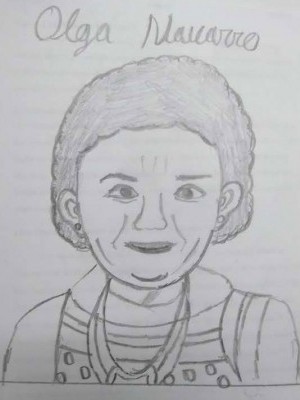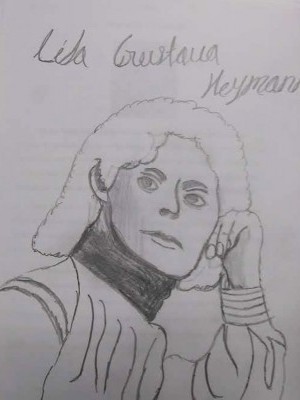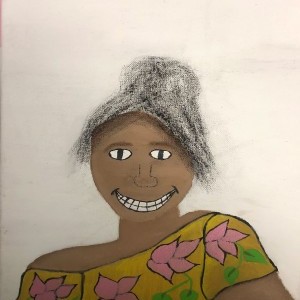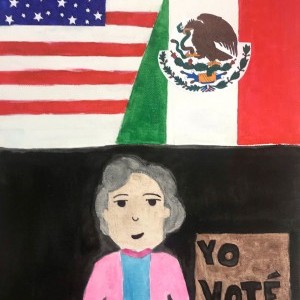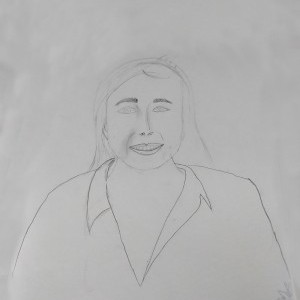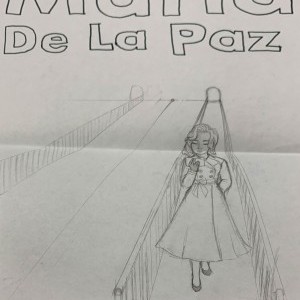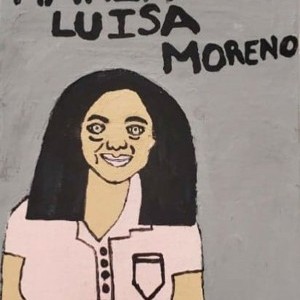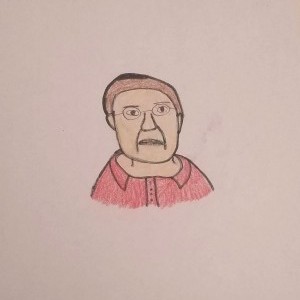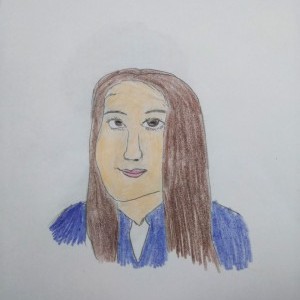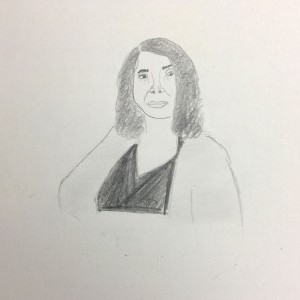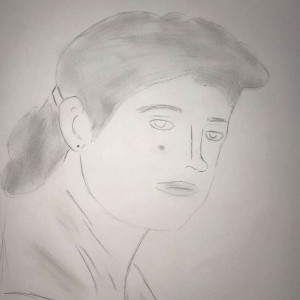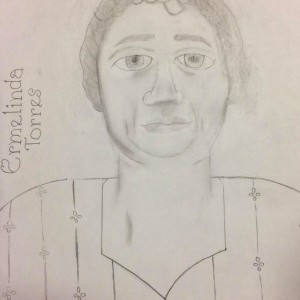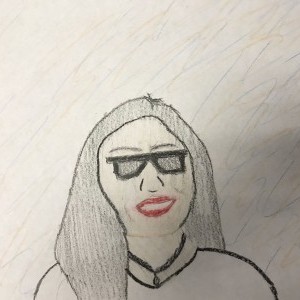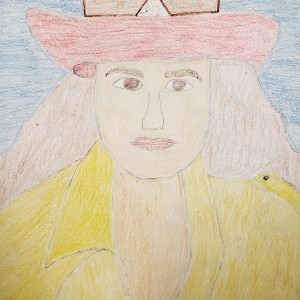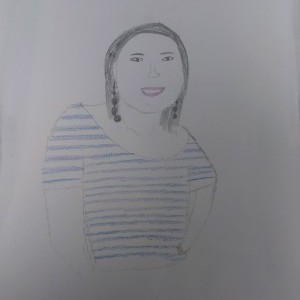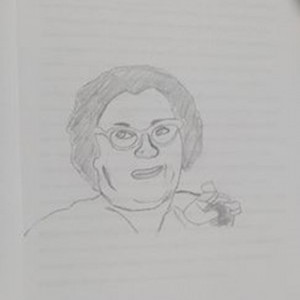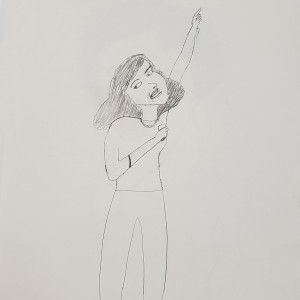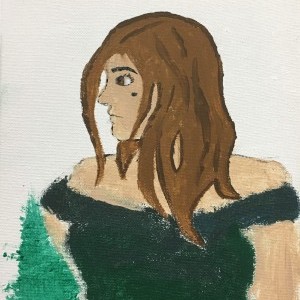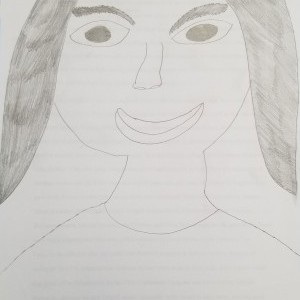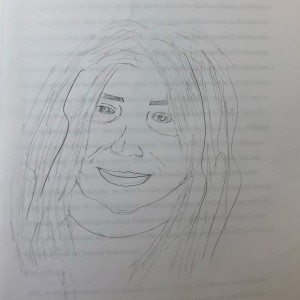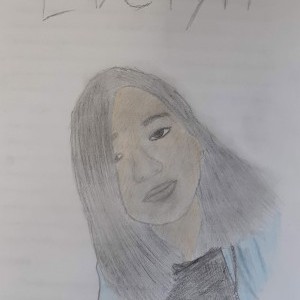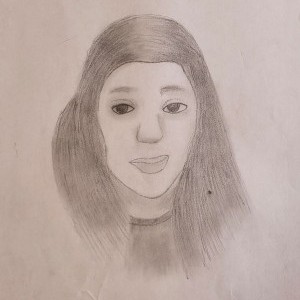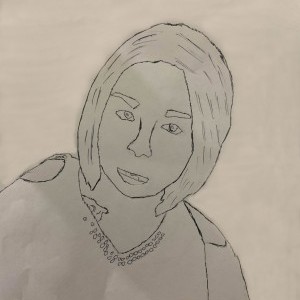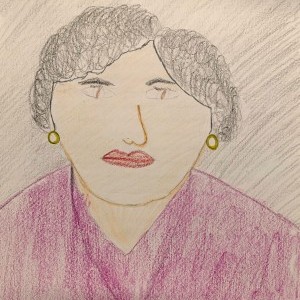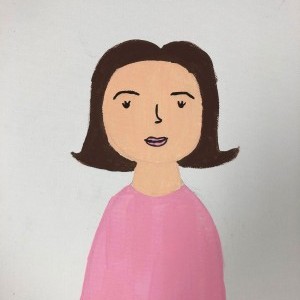Martin Garcia
García Early College High School | Laredo, TX | 10th Grade
Inspirational Family Member
Olga Navarro
The first female family member who had the right to vote was my grandma Olga Navarro. My grandma Olga Navarro was born on June 23, 1945 in Nuevo Laredo, Tamaulipas. As a little kid while living in Nuevo Laredo she would always go on vacations and travel with her parents since they were somewhat wealthy. She was always a mischievous little girl while growing up as my mom described. She liked to have fun and hangout with all the other kids.
In her later years when she was 20, she had gotten married to my grandpa Elias Garcia. They then decide to keep their store business and later moved to the U.S. in 1965. At this point in her life she would always work in her store with my grandpa. She later on had kids throughout her life one of them being my mom Veronica Garcia.
Since she had kids of her own, she had to manage her schedule to have both time for work and her children. She would always go to vote if she had the chance. My grandma was big on the rights for women and would argue with anyone. She always wanted the right to vote and since she had it, she never ever wanted to lose it. In 2017 my grandma has passed away at the age of 72 by cancer. Although she was always busy with work, she did leave a mark on all her kids, including my mom, and grandkids.
She lived in a time period where it was very hard to live but there was a lot of things to do. Since she had lived throughout a time period when women were allowed to vote many people were rejoicing for all their efforts finally paying off. Nowadays, in my times there is a lot of political conflicts and whenever something good happens that we fought for we celebrate just like any other time or event. My life compared to my grandma's has some similar periods of times where we both had hard times.
Historical Figure I Admire
Lida Gustava Heymann
Lida Gustava Heymann was a German feminist, pacifist, and a leading women's right advocate. She was an active pacifist in the German middle and upper-class women's movement in 1933. Heymann along with her life partner, Anita Augspurg, was a leading figure in the women's rights movement in Germany.
Lida Gustava Heymann was born in Hamburg, Germany on March 15, 1868. Heymann was born into a bourgeois (middle class) family. She was educated throughout her life by private teachers at home until she eventually visited a Girl's High School in Hamburg. One year later after being in Dresden, Germany, she returns home to her family. When Heymann arrives, she decides to start teaching in a charity school and becomes the headmistress of a sewing school simultaneously.
After the death of her father she is financially independent and engages herself in different social facilities. It's not specifically said when her father died, just that it had impacted her to engage herself in social activities. She had then established a nursery, a kitchen, a lunch club for single women, a women's home, and a society for female clerical workers from her father's inheritance after his death. In Berlin, she visited the “International Congress for Women's Activities” and met Anita Augspurg (her life partner). In 1898, Heymann joined Minna Cauer and Anita Augspurg in founding the German branch of the International Abolitionist Federation, campaigning for the decriminalization and protection of prostitutes. In the same year, she joined the founders of the Union of Progressive Women's Associations. Already in 1902 Anita Augspurg and Lida Gustava Heymann had demanded that women should be allowed to take part in elections. In 1918 this right was embodied in the Weimar Constitution. Until women reached equality with men they had to wait a further thirty years. Unfortunately, it was not put into effect immediately but some years later. Heymann at this point was living throughout Hitler's rule between 1933 and 1945. They were left poor and in need of support from wealthy friends in Zurich since the German government had confiscated their wealth. In 1902 she jointly found (with Anita) the first society for women's suffrage. She published the newspaper Women In The State from 1919 to 1933. The newspaper was written about the pacifist, feminist, and democratic positions on various subjects. In 1923 Heymann and Augspurg called for the Austrian Adolf Hitler to be expelled from Germany. When Hitler seized power in 1933, both were out of the country; they didn't return home. After this, both Lida and Anita live and work together. In Bavaria they buy a farm to live in after Hitler came into power. Their property was confiscated, and they settled in Switzerland. Heymann died on July 13th, 1943 and was buried in Fluntern Cemetery in Zürich, Switzerland.
Heymann and Augspurg both worked very hard throughout their lifetime to give rights to women. They had a major part in advancing the German Women's Movement since they were always trying to do anything they could to have equality. They were motivated by their pasts and social status. Heymann was motivated by her past and the fact that she got into politics. They impacted the lives of future females by allowing them to be closer to freedom and the equality they deserved. At the time I don't think that they were aware of being future role models for females all around the world, but they sure did know that they were going to help many future generations. They sacrificed almost everything they had like their wealth to support the women's movement and further strengthen it. Their contributions have helped change the lives of many females in Germany nowadays and they have left a lasting contribution.
SOURCES +
What the Project Means to Me
As I spent days and hours researching about my grandma from both my mom and peers on her life when she was able to vote, I learned many things I really didn't know about my grandmother. I never really got to spend time with my grandma whilst she was alive since my family would never visit and she was always busy with her other kids. Doing research about my grandma made me feel like I had a strong connection with her unlike the way I did when she was still alive. In all honesty I had an incredible experience doing this essay on both the researching factor and writing factor.
When I did research to connect some of the aspects of my grandma's life to history, I really didn't find anything similar to hers besides women living throughout the period in time when women were able to vote. With this part I really didn't have much fun since it required me to search and study many different people to just find a relation to my grandmother's life.
Now, voting has been very important since it helps decide the future of the people. Voting matters in all the three levels which are local, state, and federal. Now why does voting matter in all three levels? It matters because without having voting in any of these our government and society would not be the same as it is today. It would be more chaotic and unstable. If people decide to not participate in any of these forms of voting elections it could make a big difference if they actually did. Nowadays, voting is sometimes rigged so it's very important for people to vote and keep their rights otherwise they might lose them somewhere in the future.
Explore the Archive
More From This Class
Click on the thumbnails below to view each student's work.Deadline Extended
There's still time to join Women Leading the Way.
Become a part of our storytelling archive. Enroll your class today.
Join the Project

